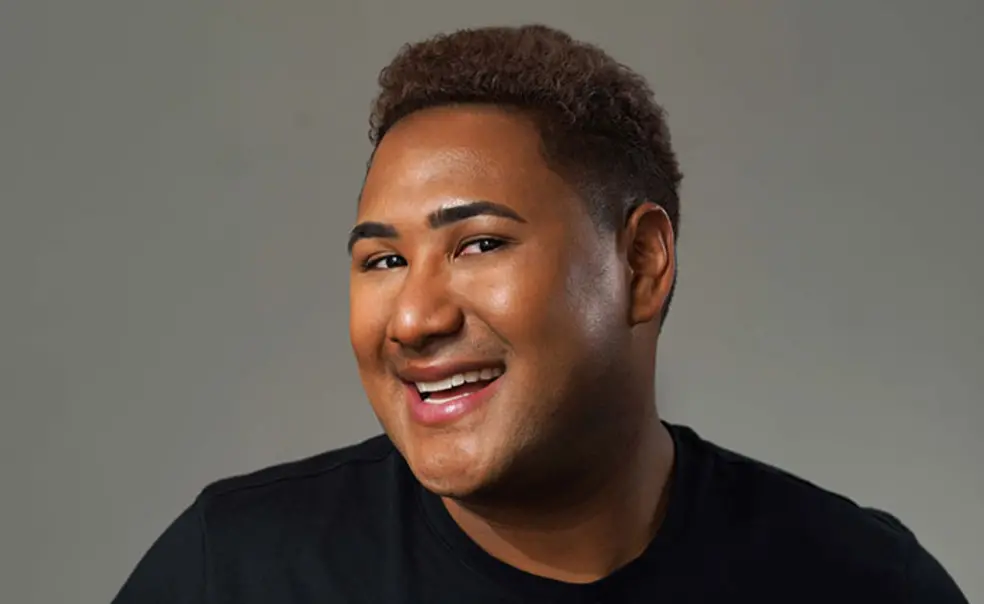Playwright Roger Q. Mason ’08 Explores LGBTQ Visibility
“Sometimes all somebody needs is to feel like they exist,” Mason says
Roger Q. Mason ’08 left Princeton in the midst of a recession — a time when, for many of his classmates, finding work was close to impossible. They graduated from college to join the emerging gig economy: freelancing, opening small businesses, working for themselves. The situation made members of that graduating class “highly entrepreneurial,” Mason says. “We had to make a way out of no way.”
Mason did just that, adapting his theoretical education as an English major into a career. He moved back to Los Angeles and joined the play development team at Ensemble Studio Theatre/LA as a literary associate. He also launched a story consultancy business. “The same questions I’m asking a playwright about character logic and story are germane to any story that’s being told,” he says. “Whether it’s your résumé or cover letter or college essays, you’re essentially helping [someone] write a play.”
His two lives — one as a storytelling coach, the other as a writer/performer — melded into one. Meanwhile, Mason was figuring out how to tell his own story. After earning an MFA in writing for screen and stage at Northwestern in Chicago, he began writing Lavender Men, a historical fantasia following a love affair between the young Abraham Lincoln and his legal assistant. He took a pause to work on his play, The White Dress, which had two off-Broadway runs, before returning to Lavender Men. The first public reading of the script took place at Skylight Theatre in Los Angeles and only weeks later, in August 2019, the second reading drew a sold-out Broadway audience.
In this “emancipation play,” Mason plays Taffeta, a self-proclaimed “fabulous queer creation of color” who invades the inner world of Lincoln to explore issues of queer loneliness and visibility affecting the LGBTQ community and America at large. Taffeta was, at first, a minor narrating role. But then Mason considered playing the character himself. “It became undeniable that this became a piece I had written specifically about me,” he says.
Mason says he uses the love story of Lincoln and his assistant — two white men representing archetypes of Americana — as a springboard to explore how he, as a writer, performer, and person, felt left out of love stories like theirs. “The more I submitted myself to my own truth and the vulnerability of my own life, the more people started leaning in,” he says. “We go to the theatre to see our lives and experiences reflected back to us, a mission I have always held onto. Through that exchange, people can leave changed and renewed to go back out into the world and trudge on. Sometimes all somebody needs is to feel like they exist.”
In light of COVID-19, however, this type of experience is put on hold. Lavender Men, originally slated to run in April at Skylight Theatre, will eventually be one of the first shows to welcome the public back when the theater reopens. With this extra time comes an opportunity to edit the script, staging, and music. “This has endowed all of us with a greater sense of responsibility that comes with putting something in front of an audience that hasn’t had a chance to see live entertainment for months,” says Lavender Men director Lovell Holder ’09, an LA-based film producer, actor, and writer. He and Mason, who met at Princeton, first worked together on a short film adaptation of Mason’s play Softer.
Holder and Mason had already debated the play’s ending: How optimistic or bleak should it be? Over the past few weeks, they’ve come to some conclusions. “We don’t want people to leave feeling down,” Holder said. “We want them to leave feeling hopeful. That’s the only way for [the play] to thrive in a post-COVID world.” After all, Mason says, a script is like a blueprint — it’s allowed to adapt to the times.










No responses yet